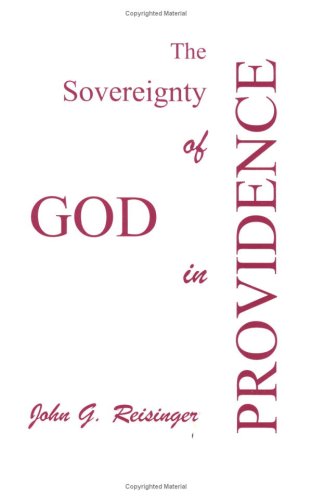Quotes about Romans8_28
God judged it better to bring good out of evil than to permit no evil to exist.
For the Almighty God, who, as even the heathen acknowledge, has supreme power over all things, being Himself supremely good, would never permit the existence of anything evil among His works if He were not so omnipotent and good that He can bring good even out of evil.
God never pursues His glory at the expense of the good of His people, nor does He ever seek our good at the expense of His glory. He has designed His eternal purpose so that His glory and our good are inextricably bound together. What comfort and encouragement this should be to us. If we are going to learn to trust God in adversity, we must believe that just as certainly as God will allow nothing to subvert His glory, so He will allow nothing to spoil the good He is working out in us and for us.
Trusting God, 1988, p. 25. Used by permission of NavPress – www.navpress.com. All rights reserved. Get this book!
God never allows pain without a purpose in the lives of His children. He never allows Satan, nor circumstances, nor any ill-intending person to afflict us unless He uses that affliction for our good. God never wastes pain. He always causes it to work together for our ultimate good, the good of conforming us more to the likeness of His Son (see Romans 8:28-29).
Transforming Grace, NavPress, 1991, p. 139. Used by permission of NavPress – www.navpress.com. All rights reserved. Get this book!
That which should distinguish the suffering of believers from unbelievers is the confidence that our suffering is under the control of an all-powerful and all-loving God; our suffering has meaning and purpose in God’s eternal plan, and He brings or allows to come into our lives only that which is for His glory and our good.
The Practice of Godliness, NavPress, 1996, p. 32. Used by permission of NavPress – www.navpress.com, All rights reserved. Get this book!
The good that God works for in our lives is conformity to the likeness of His Son. It is not necessarily comfort or happiness but conformity to Christ in ever-increasing measure in this life and in its fullness in eternity.
The Practice of Godliness, NavPress, 1996, p. 120. Used by permission of NavPress – www.navpress.com, All rights reserved. Get this book!
Paul and James both say that we should rejoice in our trials because of their beneficial results. It is not the adversity considered in itself that is to be the ground of our joy. Rather, it is the expectation of the results, the development of our character that should cause us to rejoice in adversity. God does not ask us to rejoice because we have lost our job, or a loved one has been stricken with cancer, or a child has been born with an incurable birth defect. But He does tell us to rejoice because we believe He is in control of those circumstances and is at work through them for our ultimate good.
The Practice of Godliness, NavPress, 1996, p. 175. Used by permission of NavPress – www.navpress.com, All rights reserved.
To derive the fullest comfort and encouragement from Romans 8:28 we must realize that God is at work in a proactive, not reactive, fashion. That is, God does not just respond to an adversity in our lives to make the best of a bad situation. He knows before He initiates or permits the adversity exactly how He will use it for our good.
The Practice of Godliness, NavPress, 1996, p. 207. Used by permission of NavPress – www.navpress.com, All rights reserved. Get this book!
Nothing can be more consoling to the man of God, than the conviction that the Lord who made the world governs the world; and that every event, great and small, prosperous and adverse, is under the absolute disposal of Him who doth all things well, and who regulates all things for the good of his people.
The Practice of Godliness, NavPress, 1996, p. 214. Used by permission of NavPress – www.navpress.com, All rights reserved. Get this book!
God does deal with our sins, but only in such a way as for our good. He does not deal with us as our sins deserve, which would be punishment, but as His grace provides, which is for our good.
Transforming Grace, NavPress, 1991, p. 40. Used by permission of NavPress – www.navpress.com. All rights reserved.
[God] is at work in all the circumstances of your life to bring out the good for you, even if you had never heard of Romans 8:28. His work is not dependent upon your faith. But the comfort and joy that statement is intended to give you is dependent upon your believing it, upon your trusting in Him who is at work, even though you cannot see the outcome of that work.
The Practice of Godliness, NavPress, 1996, p. 116. Used by permission of NavPress – www.navpress.com, All rights reserved.
I hear men praying everywhere for more faith, but when I listen to them carefully, and get to the real heart of their prayer, very often it is not more faith at all that they are wanting, but a change from faith to sight. Faith says not, “I see that it is good for me, so God must have sent it,” but, “God sent it, and so it must be good for me.” Faith, walking in the dark with God, only prays Him to clasp its hand more closely.
It should fill us with joy, that infinite wisdom guides the affairs of the world. Many of its events are shrouded in darkness and mystery, and inextricable confusion sometimes seems to reign. Often wickedness prevails, and God seems to have forgotten the creatures that He has made. Our own path through life is dark and devious, and beset with difficulties and dangers. How full of consolation is the doctrine, that infinite wisdom directs every event, brings order out of confusion, and light out of darkness, and, to those who love God, causes all things, whatever be their present aspect and apparent tendency, to work together for good.
Manual of Theology, Gano Books, 1982 edition of original 1857 edition published by The Southern Baptist Publication Society, p. 86-87.
An evidence that our will has been broken is that we begin to thank God for that which once seemed so bitter, knowing that His will is good and that, in His time and in His way, He is able to make the most bitter waters sweet.
Most of the time, we scratched our heads and wondered how the matted mesh of threads in Romans 8:28 could possibly be woven together for our good. On earth, the underside of the tapestry was tangled and unclear; but in heaven, we will stand amazed to see the topside of the tapestry and how God beautifully embroidered each circumstance into a pattern for our good and His glory.
Heaven: Your Real Home, Zondervan, www.Zondervan.com, 1995, p. 45. Used by Permission. Get this book!
How can all things be worked together by God for good? The answer is at hand. It is because God’s ultimate purpose is to make us like Christ. His goal is the complete restoration of the image of God in His child! So great a work demands all the resources which God finds throughout the universe, and He ransacks the possibilities of joys and sorrows in order to reproduce in us the character of Jesus.
Scripture speaks about God working everything together “for the good” of those who love him (Rom. 8:28). But what is this “good?” It consists of believers being conformed (changed and remade) to the image of Christ (Rom. 8:29). Thus, all the experiences of life are intended, under the sovereign hand of God, to help us to grow towards the great goal of the Christian life – Christ-likeness.
Healthy Christian Growth, by Permission of the Banner of Truth Trust, Carlisle, PA. 1991, p. 16.
God, who turned the crucifixion of the Son of God – the biggest evil ever committed – into something glorious. If His sovereignty has been expressed in history, there is nothing to prevent us from believing that it will be expressed in eternity. One day it will be revealed that the very existence of evil has been turned into something good.
The Cross and the Problem of Pain by Ajith Fernando taken from The Supremacy of Christ by Ajith Fernando, copyright 1995, Crossway Books, a division of Good News Publishers, Wheaton Illinois 60187, www.crosswaybooks.org, p. 216.
Whatsoever is upon you is from the Lord, and whatsoever is from the Lord, to you it is in mercy; and whatsoever comes in mercy ought not to be grievous to you. What loss is it when the losing of earthly things is the gaining of spiritual things? All shall be for your good, if you make your use of all.
A Puritan Golden Treasury, compiled by I.D.E. Thomas, by permission of Banner of Truth, Carlisle, PA. 2000, p. 13.
No sorrow, no disappointment, however severe, could ever interrupt, let alone extinguish, the joy of [our] salvation with its vision of unclouded glory to come, for this joy was founded upon the sovereign supremacy of God, who overrules all things and causes them to work together for good to those He has called.
No one acts apart from the sovereign plan of God. Every choice, every act, every decision made by every human in the world, including the most evil, heinous behavior against the truth and against the Lord, God overrules and fits into His plan for His own ends and His own glory. There’s not one rebellious molecule in the universe that operates independently of His purpose.
Table Talk on Trouble and Triumph, Part 1. The sermon originally appeared at: (https://www.gty.org/library/sermons-library/42-270/table-talk-on-trouble-and-triumph-part-1) at www.gty.org. © 1969-2008. Grace to You. All rights reserved. Used by Permission.
God will not permit any troubles to come upon us, unless He has a specific plan by which great blessing can come out of the difficulty.
Evil is no giant staggering through the world at his own whim; somehow, it accomplishes God’s will for purifying and disciplining His chosen ones (Carroll Stuhlmueller).
The crux of the human problem, according to Israel’s faith, is not the fact of suffering but the character of man’s relationship to God. Outside the relationship for which man was created, suffering drives men to despair or to the easy solutions of popular religion. Within the relationship of faith, suffering may be faced in the confidence that man’s times are in God’s hands and that “in everything God works for good with those who love him, who are called according to his purpose” (Rom. 8:28).
There may be circumstances in your earthly lot which at this moment are peculiarly trying. You look around and wonder how this or that circumstance will terminate. At present it looks very dark–clouds and mists hang over it, and you fear lest these clouds may break, not in showers upon your head, but burst forth in the lightning flash and the thunder stroke! But all things are put in subjection under Christ’s feet! That which you dread cannot take place except by His sovereign will–nor can it move any further except by His supreme disposal. Then make yourself quiet. He will not allow you to be harmed. That frowning providence shall only execute His sovereign purposes, and it shall be among those all things which, according to His promise, shall work together for your good. None of our trials come upon us by chance! They are all appointed in weight and measure–are all designed to fulfill a certain end. And however painful they may at present be, yet they are intended for your good. When the trial comes upon you, what a help it would be for you if you could view it thus, “This trial is sent for my good. It does not spring out of the dust. The Lord Himself is the supreme disposer of it. It is very painful to bear; but let me believe that He has appointed me this peculiar trial, along with every other circumstance. He will bring about His own will therein, and either remove the trial, or give me patience under it, and submission to it.
There is nothing – no circumstance, no trouble, no testing – that can ever touch me until, first of all, it has gone past God and past Christ right through to me. If it has come that far, it has come with a great purpose, which I may not understand at the moment. But as I refuse to become panicky, as I lift up my eyes to Him and accept it as coming from the throne of God for some great purpose of blessing to my own heart, no sorrow will ever disturb me, no trial will ever disarm me, no circumstance will cause my to fret – for I shall rest in the joy of what my Lord is! That is the rest of victory!
We must trust the sovereignty of God in all our unfavorable circumstances believing that He has a good plan for us. But we need to do this through a Christ-centered, Gospel-focused perspective knowing that the good that our Lord desires – growing in Christlikeness and making Him known.
If God is able to make everything that happens to us work together for our good, then ultimately everything that happens to us is good. We must be careful to use the word ultimately. On the earthly plane things that happen to us may indeed be evil… Yet God in His goodness transcends all these things and works them out to our good. For the Christian, ultimately, there are no tragedies.
Taken from: Essential Truths of the Christian Faith by R. C. Sproul, Copyright © 1992 (Sproul), p. 50, Used by permission of Tyndale House Publishers, Inc. All rights reserved.
Upon some points a believer is absolutely sure. He knows, for instance, that God sits in the stern-sheets of the vessel when it rocks most. He believes that an invisible hand is always on the world’s tiller, and that wherever providence may drift, Jehovah steers it. That re-assuring knowledge prepares him for everything.
“We know that all things work together for good to them that love God” (Romans 8:28). The Christian does not merely hold this as a theory, but he knows it as a matter of fact. Everything has worked for good as yet; the poisonous drugs mixed in fit proportions have worked the cure; the sharp cuts of the lancet have cleansed out the proud flesh and facilitated the healing. Every event as yet has worked out the most divinely blessed results; and so, believing that God rules all, that He governs wisely, that He brings good out of evil, the believer’s heart is assured, and he is enabled calmly to meet each trial as it comes. The believer can in the spirit of true resignation pray, “Send me what Thou wilt, my God, so long as it comes from Thee; never came there an ill portion from Thy table to any of Thy children.”
Christian, remember the goodness of God in the frost of adversity.
God is wonderful in His design and excellent in His working. Believer, God overrules all things for your good. The needs-be for all that you have suffered, has been most accurately determined by God. Your course is all mapped out by your Lord. Nothing will take Him by surprise. There will be no novelties to Him. There will be no occurrences which He did not foresee, and for which, therefore, He has not provided. He has arranged all, and you have but to patiently wait, and you shall sing a song of deliverance. Your life has been arranged on the best possible principles, so that if you had been gifted with unerring wisdom, you would have arranged a life for yourself exactly similar to the one through which you have passed. Let us trust God where we cannot trace Him.
God is able to cause all things people do to us, even the bad things, to work together for our good (Rom. 8:28). That isn’t to say that all things are good, but that God can orchestrate the evil into a symphony of glory.
One Thing, Christian Focus, © Enjoying God Ministries, 2004, p. 155, www.enjoyinggodministries.com. Used by Permission.
When we dig up the gold of the past, it must be beaten into useful coins for today. Past, present, and future belong together. The most joyful knowledge is that we are citizens of heaven. Our outlook goes beyond this world, and we are in training for eternity… [In getting older] one discovers something of the plan behind the happenings of the past. When we look back we realize that behind many events, which were not important in themselves, there is a design, an order, a continuity.
No matter how dark things may appear to be, we must reckon with the invisible hand of God that works all things – yes, “all things” for our good (Rom. 8:28). As God’s children, we may not always appreciate what it is that God may be doing in our lives; but we are to trust that in every aspect of it God is fulfilling the best of plans that ultimately will be for our good. The alternative is too terrible to contemplate: things may contrive to negate the hand of God and ensure our doom. No! That can never be!
With the goodness of God to desire our highest welfare, the wisdom of God to plan it, and the power of God to achieve it, what do we lack?
Throughout the Bible, bleak situations provide the stage for God’s intervention in the lives of His people. We trust in a God who provided redemption in Jesus Christ when circumstances looked as if no redemption was possible. The events of our lives are the scene of His providential and redemptive activity. Nothing occurs by chance, takes God by surprise, or exceeds His power to handle. This is the foundation of trust.
Of all that could go wrong…in your life, God brings about good. No, we do not always know what good can come out of the situations in our lives, but God does. He makes no mistakes. We can believe that He is up to good on our behalf.
God would never permit any evil if he could not bring good out of evil.
I do not say that sin works for good to an impenitent person. No, it works for his damnation, but it works for good to them that love God… I know you will not draw a wrong conclusion from this, either to make light of sin, or to make bold with sin… If any of God’s people should be tampering with sin, because God can turn it to good; though the Lord does not damn them, He may send them to hell in this life. He may put them into such bitter agonies and soul-convulsions, as may fill them full of horror, and make them draw nigh to despair. Let this be a flaming sword to keep them from coming near the forbidden tree.
A Puritan Golden Treasury, compiled by I.D.E. Thomas, by permission of Banner of Truth, Carlisle, PA. 2000, p. 282.



























